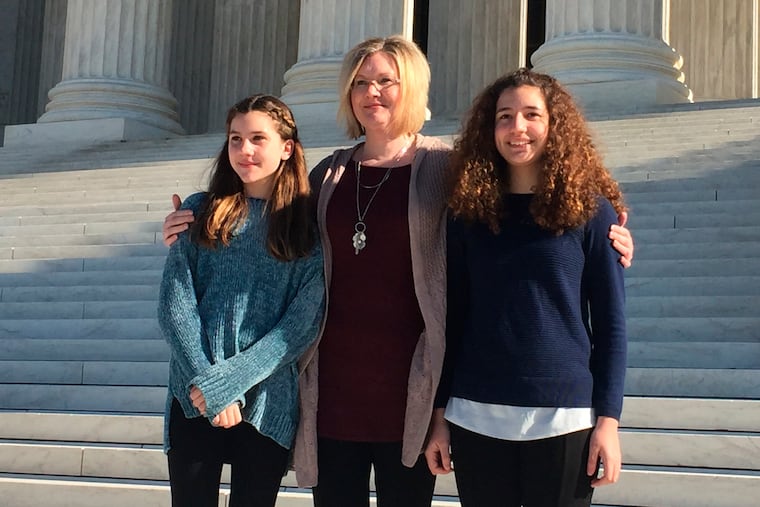Who should pay for private and religious schools? | Editorial
Advocates say parents not only have the right to send their children to any school they wish, but also that the state should pay tuition.

What rights do parents have when it comes to how their children get educated?
That question is at the crux of a case before the U.S. Supreme Court that could alter the landscape of public education — especially in Pennsylvania.
On Wednesday, the Supreme Court heard arguments in Espinoza v. Montana, prompted by a mother who tried to send her daughters to a Christian school using a tax credit-funded scholarship program.
The Montana Department of Revenue, reacting to the state’s ban on providing aid for religious education, barred credits from being used for religious schools. The Montana Supreme Court’s decision to invalidate the entire program is now being challenged.
It’s surely a coincidence that this case came before the court on the advent of National School Choice Week, a week — kicking off Sunday — created and celebrated by those who promote alternatives to traditional public education, including vouchers, tax credit scholarship programs, and charter schools. Those supporting Kendra Espinoza, including the Center for Education Reform, argue that parents have a constitutional right to direct their children’s education.
Parents’ rights to send their children to the schools they wish have been settled in a number of court cases that go back nearly a century. But advocates are arguing that parents not only have the right to send their children to any school they wish, but that the state should support their decisions by paying tuition to religious and private schools with public money.
Naturally, that’s an outrage to anyone who supports the separation of church and state, and who advocates on behalf of the responsible and transparent spending of public money. (We count ourselves in both camps.)
This case has potentially deep significance for Pennsylvania, since the commonwealth has an extreme educational tax credit program that funds $210 million in scholarships for private and religious schools; Montana’s program was capped at $3 million. (Montana capped the tax credit that people were able to receive at $150. In Pennsylvania, it’s $750,000.) In June, Gov. Tom Wolf vetoed an expansion of the program.
Diverting the already limited resources for public education to religious and private schools would be disastrous. Such a decision would further decimate public education, creating even more inequity and inflicting damage on children like English language learners, in addition to children with disabilities and other physical, intellectual, or social limitations who are cut off from private school options. It would fly in the face of the bedrock separation of church and state, as well as the need for accountability and transparency of public money.
School choice advocates argue that every child learns differently, and parents have a right to choose the kind of school best suited to their child’s needs. But the public education system was designed as a public benefit, with a different purpose in mind: to provide education to every person, despite their special or specific needs and limitations.
Those advocates aren’t wrong in demanding better options for public education and its current failures. We all should be demanding that. Schools supported by all should work for all. Parents can make a different choice, but shouldn’t rely on the rest of us to pay for it.